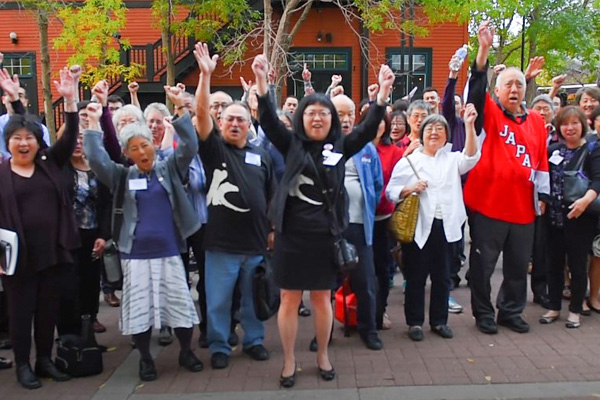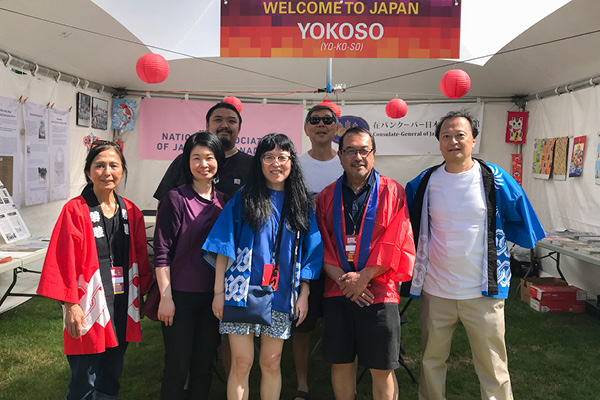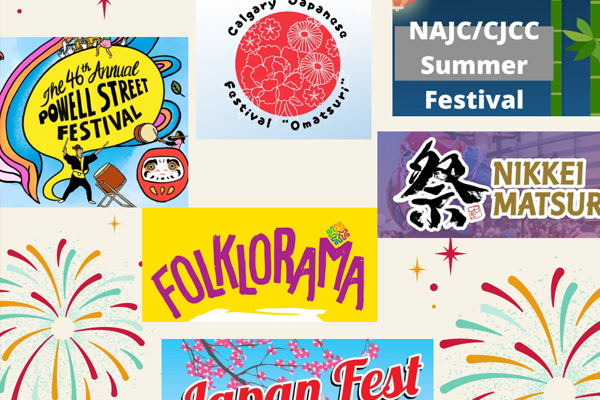President’s Message: 2011 Edmonton AGM
 The 34 delegates and alternates attending the NAJC annual general meeting at the Edmonton Japanese Community Centre (EJCC) on the weekend of October 15th experienced first-hand the famous Western hospitality. The logistical support was flawless like the weather. Under the leadership of Cathy Tennant, President of EJCC, there was a constant hive of supporters who discreetly attended to the needs of delegates and ensured the smooth transition of activities. We were warmly treated as members of the Edmonton Nikkei ohana (family). The forerunner of the current EJCC was the Edmonton Japanese Community Club Society that was officially registered with the Alberta government in 1976. The EJCC is partnered with the Argyll Community League and the current building was established in 1994. The building is large and airy with many windows which welcomes the Alberta sunshine and affords a beautiful view of the surrounding park. The building is a wonderful memorial to the Nikkei community of Edmonton.
The 34 delegates and alternates attending the NAJC annual general meeting at the Edmonton Japanese Community Centre (EJCC) on the weekend of October 15th experienced first-hand the famous Western hospitality. The logistical support was flawless like the weather. Under the leadership of Cathy Tennant, President of EJCC, there was a constant hive of supporters who discreetly attended to the needs of delegates and ensured the smooth transition of activities. We were warmly treated as members of the Edmonton Nikkei ohana (family). The forerunner of the current EJCC was the Edmonton Japanese Community Club Society that was officially registered with the Alberta government in 1976. The EJCC is partnered with the Argyll Community League and the current building was established in 1994. The building is large and airy with many windows which welcomes the Alberta sunshine and affords a beautiful view of the surrounding park. The building is a wonderful memorial to the Nikkei community of Edmonton.
The mostly Nisei volunteers reminded me of the small number of dedicated people who put in long hours to ensure the survival of Nikkei communities across Canada. We must keep those cultural doors open for our youth who will one day – as part of their quest for self-identity as Japanese Canadians – enter. In the reports presented at the meeting, member organizations listed a myriad of programmes and activities undertaken in the past year: taiko, odori, karaoke, language schools, mochi tsuki, golf tournaments, obon, film nights, storytelling, human rights, keiro kai, shinnen kai, salmon barbeques, martial arts, fujin kai, heritage preservation initiatives, sake tasting, Japan Relief, matsuri, ghost town tours, digital storytelling, curling bonspiel, annual picnics and other events reflective of their region but always with the intent to engage the younger generation and to honour the Nikkei heritage. I was happy to see, in attendance, several young people in the audience and look forward to having them take a leadership role in the NAJC soon. We officially welcomed 7 new individual members and 2 new organizations (Yukon, Victoria) to the NAJC. It is my personal goal to continue to increase membership across Canada.
During dinner, Lillian Nakamura Maguire, NAJC Vice President and Human Rights Committee Chair, unveiled the new Dr. Gordon Hirabayashi Human Rights Award which recognizes an individual or organization in Canada that has contributed to the development or promotion of human rights and equity. The award will be given every two years. We were delighted to have Gordon’s partner, Susan Carnahan and daughter Marion Oldenburg in attendance for the unveiling of the award. The Kamloops and Area Chapter of the NAJC, with support from the Vernon Japanese Cultural Society, has graciously volunteered to host the 2012 AGM.
The Myth
As I noted in my previous article, the NAJC is faced with financial challenges and we have had to cut back on administrative efficiencies in order to prevent further erosion of community based programmes and grants. The national executive committee must re-examine its financial paradigm to find a more effective use of the limited funds and will engage in an aggressive sustaining fund drive. The National Executive Board will be meeting in Winnipeg in January 2012 for a strategic planning session to examine the current health of the NAJC and re-examine its vision and mission statements and translate that into effective programmes. There is a persistent myth that non-profit cultural organizations that join the NAJC will lose their charitable tax status – nothing can be further from the truth. Art Miki challenged this myth in 2006 when he held discussions with the Charities Secretariat of the Revenue Canada Agency. Art’s report noted that: “As long as the registered charity remains independent in its operation, they can be members of other organizations that are not charitable in status (i.e. NAJC).”
As evidence of this, over 50% of the current NAJC member organizations are cultural centres. There appears to be a paradigm shift towards amalgamating the JCCA/NAJC with charitable Nikkei cultural organizations in order to consolidate financial and human resources – for such a small community as ours, this makes eminent sense. I support such a move and am aware of two current member organizations that are exploring this option.



